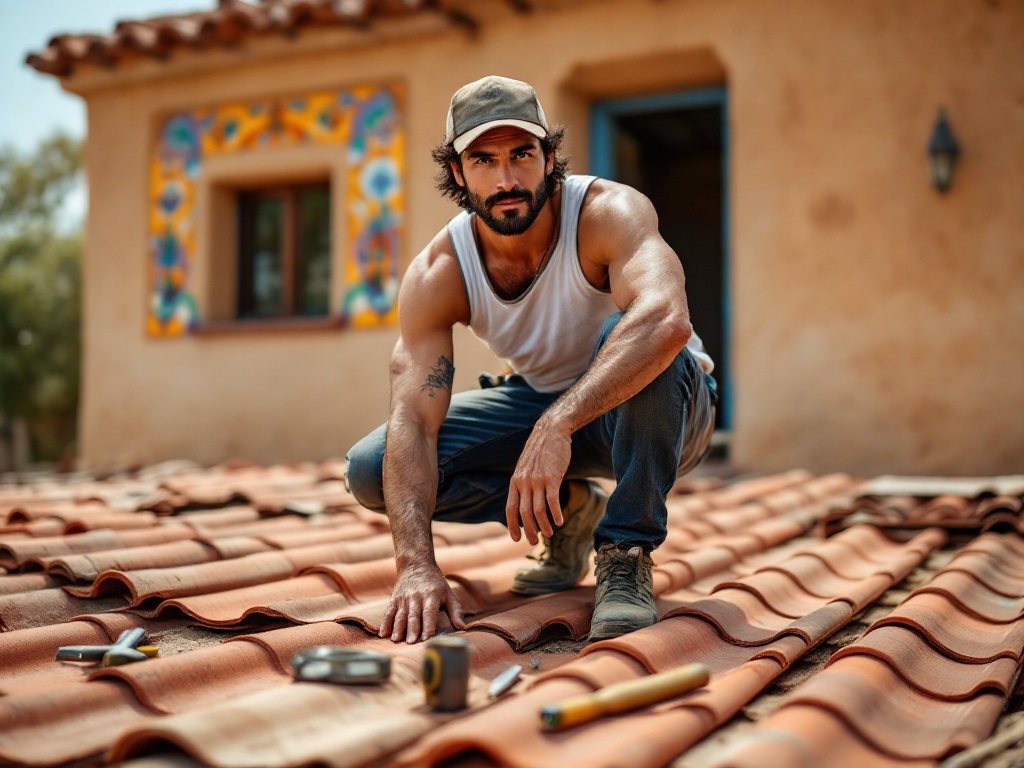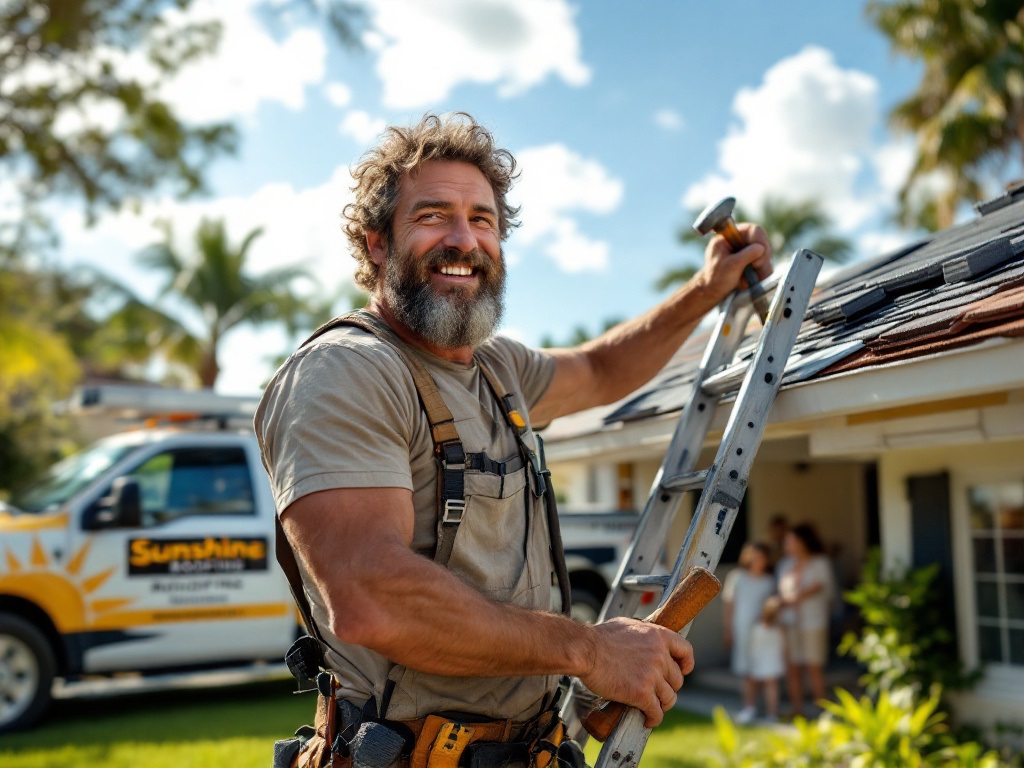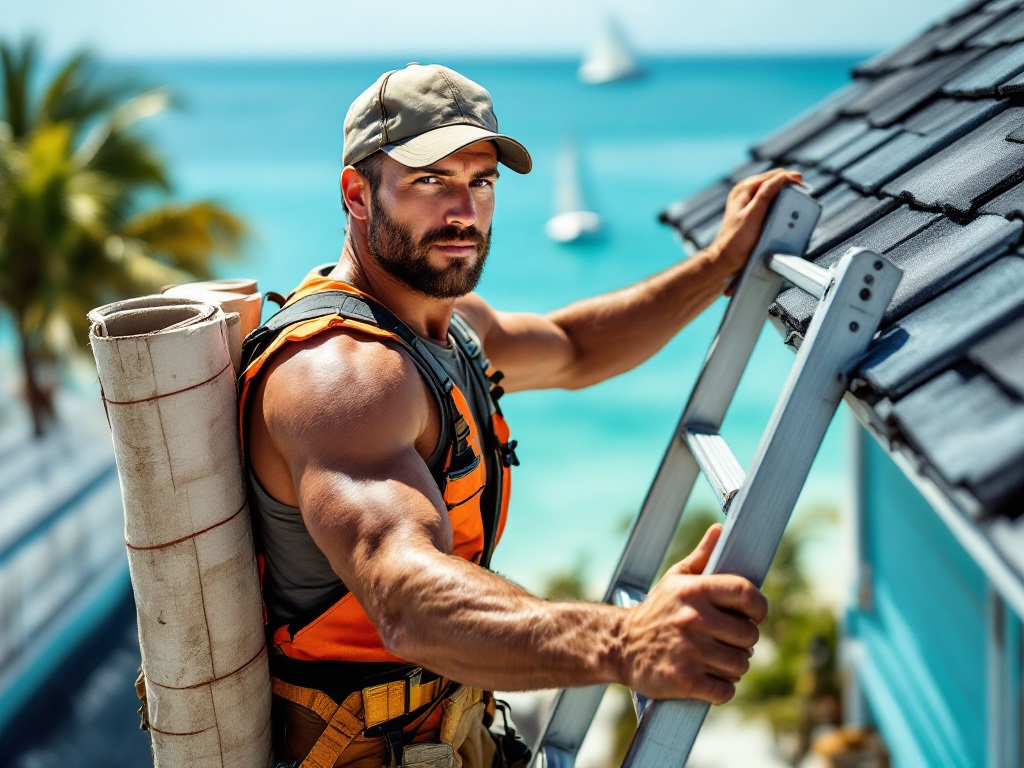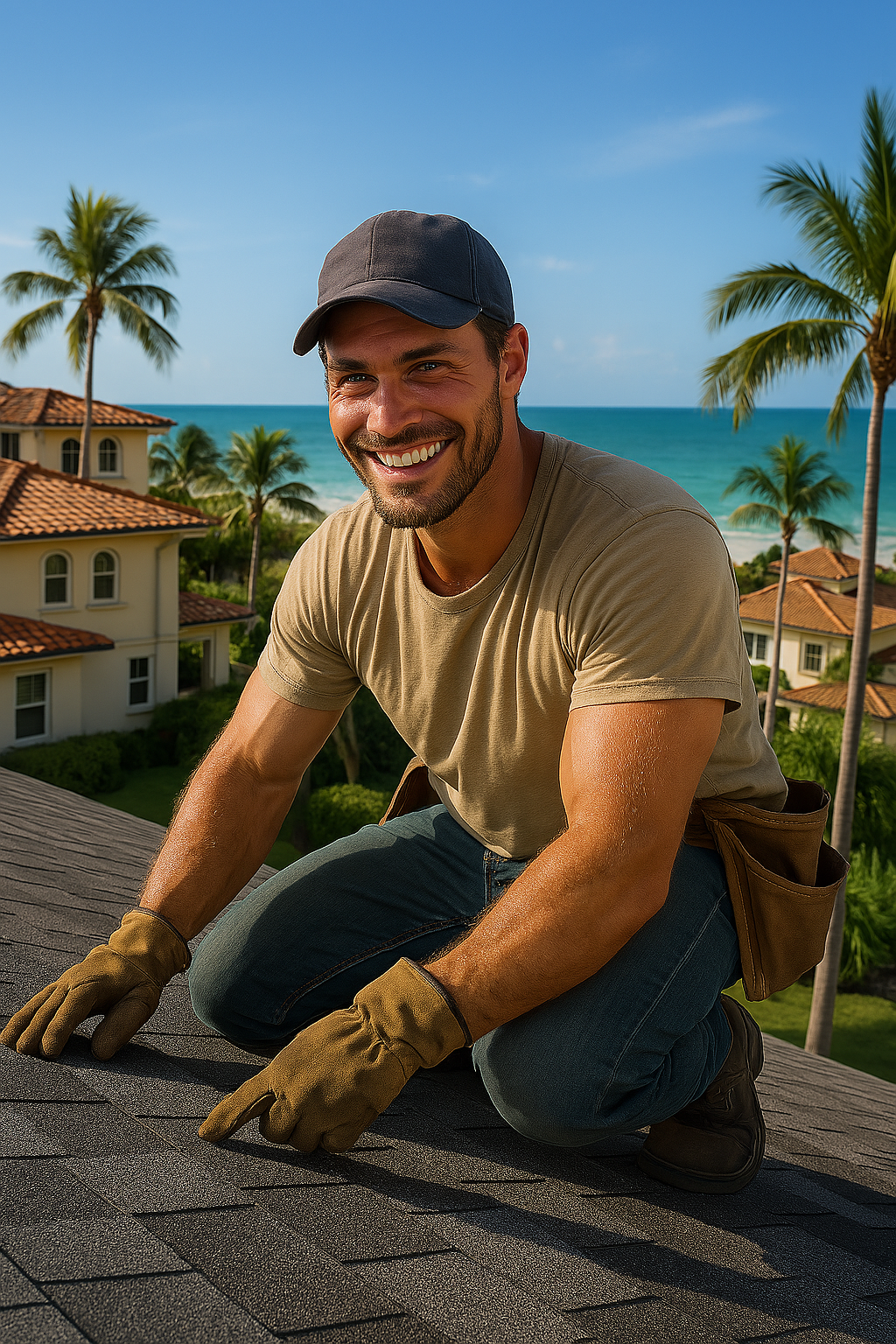
Understanding Duval County’s Unique Climate Challenges
Duval County, encompassing Jacksonville and its coastal communities, experiences a humid subtropical climate that presents formidable challenges for residential and commercial roofing systems. With annual rainfall exceeding 50 inches, humidity levels averaging 80%, and the constant threat of tropical storms and hurricanes, roofs in this region endure relentless environmental stress. Coastal neighborhoods, such as Atlantic Beach and Jacksonville Beach, face additional strain from salt-laden air, which accelerates corrosion of roofing materials.
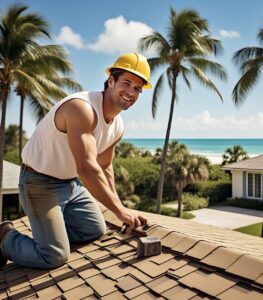 Historical storms, like Hurricane Irma in 2017 and Hurricane Ian in 2022, have demonstrated the destructive potential of wind and water, with NOAA reporting a 40% annual probability of tropical storm impacts in Jacksonville. These conditions render standard roofing materials inadequate for long-term performance.
Historical storms, like Hurricane Irma in 2017 and Hurricane Ian in 2022, have demonstrated the destructive potential of wind and water, with NOAA reporting a 40% annual probability of tropical storm impacts in Jacksonville. These conditions render standard roofing materials inadequate for long-term performance.
The Florida Building Code, tailored to address these risks, mandates that roofs in Duval County withstand wind speeds of 130–150 mph, a critical requirement given the region’s exposure to hurricanes. Summer temperatures, often reaching 90°F or higher, exacerbate shingle degradation, while sudden, intense downpours challenge waterproofing systems.
For instance, a homeowner in San Marco reported persistent leaks following a 2024 storm, attributed to an aging roof unable to cope with heavy rainfall. Proximity to the coast further complicates matters, as salt spray can reduce roof lifespans by 10–20% compared to inland areas, according to local roofing studies. These factors collectively underscore the need for specialized roofing solutions designed to combat Duval County’s unique environmental demands.
Detailed Climate Challenges in Jacksonville:
High Humidity: Persistent moisture fosters mold, mildew, and algae growth, which can compromise roof aesthetics and structural integrity. Algae, in particular, affects 40% of roofs in Duval County, per local contractor data, leading to discoloration and material breakdown.
Hurricanes and Tropical Storms: High winds cause uplift, tearing shingles and exposing underlayments, while flying debris can puncture roofing surfaces. The 2016 Hurricane Matthew alone caused $200 million in regional damage, with roofs accounting for a significant portion.
- Coastal Corrosion: Salt air erodes metal components, such as flashing and fasteners, and degrades asphalt-based materials, necessitating corrosion-resistant alternatives.
- Heavy Rainfall and Poor Drainage: Intense storms overwhelm inadequate drainage systems, leading to water pooling, leaks, and long-term damage. A 2023 study by Jacksonville roofing firms noted that 25% of local roof leaks stem from clogged gutters or insufficient slope.
- Extreme Heat: Prolonged exposure to high temperatures accelerates granule loss on shingles, reducing their protective capabilities and shortening roof lifespans.
Standard roofing systems, such as basic three-tab asphalt shingles, often fail within a decade under these conditions, resulting in frequent repairs and replacements. Homeowners and businesses in Jacksonville must prioritize advanced materials, such as impact-resistant shingles, metal roofs, or concrete tiles, paired with robust ventilation and waterproofing systems. Consulting a local roofing expert familiar with Duval County’s weather patterns is essential to identify vulnerabilities and implement tailored solutions. A complimentary roof inspection can uncover issues—such as cracked shingles or compromised flashing—before they escalate during the next storm season. By addressing these challenges proactively, property owners can protect their investments and ensure long-term durability.
Why Hurricane-Ready Roofs Are Essential in Jacksonville
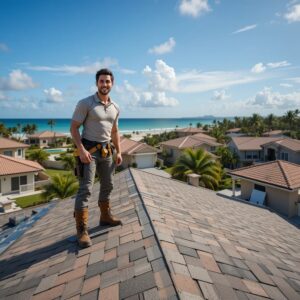 Hurricanes are an inescapable reality for Duval County residents, with the Atlantic hurricane season spanning June through November. Storms like Hurricane Matthew in 2016, which caused widespread flooding, and Hurricane Ian in 2022, which brought 100 mph gusts, have left lasting impacts, with local insurance data indicating that 60% of claims in Duval County are linked to wind and debris-related roof damage. The financial toll of these events, often reaching millions of dollars, underscores the necessity of hurricane-ready roofing systems to safeguard homes and businesses.
Hurricanes are an inescapable reality for Duval County residents, with the Atlantic hurricane season spanning June through November. Storms like Hurricane Matthew in 2016, which caused widespread flooding, and Hurricane Ian in 2022, which brought 100 mph gusts, have left lasting impacts, with local insurance data indicating that 60% of claims in Duval County are linked to wind and debris-related roof damage. The financial toll of these events, often reaching millions of dollars, underscores the necessity of hurricane-ready roofing systems to safeguard homes and businesses.
Hurricane-ready roofs are engineered to withstand extreme weather, incorporating features like impact-resistant shingles (rated Class 4 for hail and debris resistance), sealed underlayments, and reinforced flashing to prevent wind uplift and water intrusion. The Florida Building Code’s stringent requirement for roofs to resist 150 mph winds—equivalent to a Category 4 hurricane—necessitates advanced installation techniques, such as six-nail fastening for shingles and high-adhesion underlayments. A Riverside homeowner, for example, credited their metal roof’s compliance with these standards for surviving a 2023 tropical storm unscathed, while neighboring properties with older asphalt roofs suffered significant damage.
Benefits of Hurricane-Ready Roofs:
- Superior Wind Resistance: Designed to endure gusts up to 150 mph, these roofs protect against shingle loss and structural failure during hurricanes.
- Enhanced Waterproofing: Sealed underlayments and secondary water barriers prevent leaks, even during Jacksonville’s torrential rains, which can dump 5 inches of water in a single event.
- Insurance Premium Discounts: Many Duval County insurers offer discounts of up to 20% for homes with hurricane-ready roofs, offsetting installation costs over time.
- Extended Durability: These systems last 10–15 years longer than standard roofs, reducing the need for frequent replacements in a storm-prone region.
- Peace of Mind: Knowing your roof can withstand severe weather alleviates stress during hurricane season, a significant benefit for Jacksonville residents.
Conversely, roofs lacking these features are highly vulnerable. A Jacksonville Beach homeowner faced $30,000 in repairs after a 2024 storm tore through outdated shingles, exposing the home to water damage. Local roofing experts emphasize the importance of secondary water barriers, which create an additional layer of protection against leaks, particularly in Duval County’s high-rainfall environment. Retrofitting existing roofs with hurricane-resistant features, such as upgraded underlayments or impact-rated skylights, can also enhance resilience without requiring a full replacement.
Investing in a hurricane-ready roof is not merely a precaution but a financial and safety imperative. Homeowners and businesses should schedule a storm-readiness assessment with a Jacksonville roofing professional to evaluate their current roof’s condition and explore upgrade options. By acting proactively, property owners can mitigate risks and avoid the costly aftermath of storm-related damage.
Top Roofing Materials for Jacksonville’s Coastal Climate
Selecting the appropriate roofing material is a critical decision for Duval County properties, where the coastal climate demands exceptional resilience against storms, salt corrosion, and intense heat. Materials that perform well in milder climates often deteriorate rapidly near the St. Johns River or Atlantic coast, where humidity and salt spray accelerate wear. Below is an in-depth analysis of the top roofing materials suited for Jacksonville’s challenging conditions, including their costs, lifespans, and ideal applications.
Recommended Roofing Materials:
- Asphalt Shingles: The most cost-effective option, with impact-resistant variants (Class 4) designed to withstand hail and windborne debris. These shingles are popular in neighborhoods like Mandarin and Southside due to their affordability and versatility. Cost: $4–$8 per square foot. Lifespan: 15–25 years. Best For: Budget-conscious homeowners seeking reliable storm protection.
- Metal Roofs: Highly durable and resistant to salt corrosion, metal roofs (e.g., aluminum or galvanized steel) are ideal for coastal areas like Atlantic Beach and Jacksonville Beach. Their reflective surfaces also reduce cooling costs. In 2024, metal roofs accounted for 30% of new installations in Duval County, per local contractor surveys. Cost: $8–$15 per square foot. Lifespan: 30–50 years. Best For: Coastal properties and energy-conscious homeowners.
- Concrete Tiles: Known for their longevity and aesthetic appeal, concrete tiles suit upscale homes in historic districts like San Marco and Riverside. However, their weight requires structural reinforcement, increasing installation costs. Cost: $10–$20 per square foot. Lifespan: 40–60 years. Best For: Luxury homes and historic properties.
- Composite Roofs: Made from recycled materials, composite roofs mimic the look of slate or wood shakes while offering durability and eco-friendliness. They are gaining traction among environmentally conscious Jacksonville residents. Cost: $7–$12 per square foot. Lifespan: 20–40 years. Best For: Eco-friendly homeowners seeking sustainable options.
Case Studies and Trends:
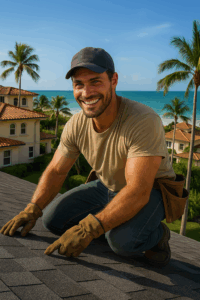 A Mandarin homeowner who upgraded to a metal roof in 2023 reported a 15% reduction in cooling costs due to its reflective properties, alongside enhanced storm resistance. Similarly, a San Marco property with concrete tiles withstood a 2024 tropical storm without damage, preserving its historic charm. Composite roofs, though less common, are emerging as a sustainable choice, with installations doubling in Duval County’s green communities since 2022.
A Mandarin homeowner who upgraded to a metal roof in 2023 reported a 15% reduction in cooling costs due to its reflective properties, alongside enhanced storm resistance. Similarly, a San Marco property with concrete tiles withstood a 2024 tropical storm without damage, preserving its historic charm. Composite roofs, though less common, are emerging as a sustainable choice, with installations doubling in Duval County’s green communities since 2022.
Asphalt shingles remain the dominant choice for their affordability, but only high-quality, impact-resistant versions meet Jacksonville’s storm demands.
When choosing a material, homeowners should consider their budget, aesthetic preferences, and the specific microclimate of their location. Coastal properties benefit most from metal or composite roofs, while inland homes may suffice with upgraded asphalt shingles. Consulting a Jacksonville roofing professional ensures the selected material aligns with Duval County’s climate and building codes. Schedule a consultation today to explore the best options for your property.
The Role of Ventilation in Jacksonville Roof Longevity
In Jacksonville’s oppressive summers, where temperatures climb to 95°F and humidity hovers near 90%, proper roof ventilation is a cornerstone of roof longevity. Duval County’s climate creates a perfect storm of heat and moisture in attics, leading to mold growth, shingle deterioration, and skyrocketing cooling costs. Effective ventilation systems, such as ridge vents, soffit vents, and solar-powered fans, mitigate these risks by promoting airflow and maintaining optimal attic conditions.
Without adequate ventilation, attic temperatures in Jacksonville can soar to 150°F, reducing shingle lifespans by up to 20%, according to roofing industry studies. Trapped moisture fosters mold and mildew, which thrive in Duval County’s humid environment and pose health risks to occupants. A 2024 case in Ortega highlighted the consequences of poor ventilation: a homeowner faced $5,000 in mold remediation costs due to blocked soffit vents. Conversely, proper ventilation can lower cooling costs by 10–15%, offering significant savings for residents near the St. Johns River, where energy demands are high.
Effective Ventilation Options:
- Ridge Vents: Installed along the roof’s peak, these vents allow hot air to escape, reducing attic temperatures and preventing moisture buildup. They are a standard feature in new Jacksonville homes.
- Soffit Vents: Positioned under the eaves, soffit vents draw in cooler outside air, creating a continuous airflow cycle that keeps attics dry and cool.
- Solar-Powered Vents: These eco-friendly fans, powered by solar energy, actively expel hot air and are increasingly popular in Duval County’s sustainability-focused communities, such as Avondale.
- Turbine Vents: Wind-driven vents that enhance airflow, suitable for larger homes or commercial properties in Jacksonville’s suburbs.
- Ventilation Best Practices: The Florida Building Code recommends 1 square foot of ventilation per 150 square feet of attic space to ensure adequate airflow. Common mistakes, such as covering soffit vents with insulation or installing undersized ridge vents, undermine performance and accelerate roof damage. A 2023 study by Jacksonville roofing contractors found that 30% of local homes had insufficient ventilation, leading to premature shingle failure. Homeowners should also ensure that vents are free of debris, particularly after storms, to maintain functionality.
A practical example of ventilation’s impact comes from a Southside homeowner who installed solar-powered vents in 2024, reducing attic temperatures by 20°F and extending their roof’s lifespan by an estimated 5 years. By contrast, a Jacksonville Beach property with poor ventilation required a full roof replacement after mold spread from the attic to the interior. To maximize roof longevity, homeowners should consult a Jacksonville ventilation specialist for a comprehensive attic assessment, ensuring compliance with local codes and optimal performance in Duval County’s climate.
Expert Installation Techniques for Duval County Roofs
The durability of a roof in Jacksonville hinges on expert installation, as Duval County’s storms rigorously test every component, from shingles to flashing. Advanced techniques, grounded in the Florida Building Code, ensure roofs can withstand hurricanes, heavy rains, and coastal corrosion. Jacksonville roofers with local expertise deliver installations that meet or exceed these standards, providing superior protection against the region’s harsh conditions.
Key Installation Techniques:
- Six-Nail Fastening: Using six nails per shingle, as opposed to the standard four, doubles wind resistance, enabling roofs to withstand gusts exceeding 150 mph. This technique is mandatory in Duval County’s high-velocity hurricane zones.
- Self-Adhered Underlayments: These waterproof membranes create a robust seal beneath shingles, preventing leaks during Jacksonville’s intense downpours. They are a code requirement in coastal areas.
- Reinforced Flashing: Upgraded flashing around chimneys, vents, and skylights resists corrosion and prevents water intrusion, addressing a common failure point in older homes.
- Drip Edge Installation: A metal strip along roof edges directs water away from the fascia, reducing the risk of rot and leaks in Duval County’s wet climate.
- Real-World Impact: A 2023 installation in Jacksonville’s Southside used six-nail fastening and self-adhered underlayments, enabling the roof to withstand a tropical storm with no damage, while neighboring homes required repairs. Poor flashing, a frequent issue in older Jacksonville properties, accounts for 30% of local leaks, per contractor data. A Mandarin business avoided $20,000 in repairs by hiring a local roofer who implemented code-compliant flashing and underlayments, highlighting the value of expertise.
Hiring licensed Jacksonville contractors is critical, as out-of-state roofers often overlook local code nuances, risking non-compliance and costly fines. A 2024 case in San Marco illustrated this: a non-local contractor’s failure to install proper underlayments led to leaks and a $15,000 repair bill. Local roofers, certified by organizations like the Florida Roofing and Sheet Metal Contractors Association, ensure installations align with Duval County’s wind and waterproofing requirements. Homeowners and businesses should verify a contractor’s license, check reviews on platforms like Jax4Jax, and request references to ensure quality. Schedule a consultation with a Jacksonville roofing expert to protect your property with industry-leading installation techniques.
Maintaining Your Jacksonville Roof Year-Round
Regular maintenance is a non-negotiable aspect of preserving a roof’s integrity in Duval County, where relentless storms, humidity, and coastal conditions take a toll. Proactive care, particularly before and after hurricane season (June–November), prevents minor issues from escalating into costly repairs. Jacksonville homeowners can follow a structured maintenance plan to keep their roofs in peak condition year-round.
Seasonal Maintenance Tasks:
- Spring (Pre-Hurricane Season): Clear gutters of debris, inspect shingles for cracks or missing granules, and check flashing for signs of wear. This prepares roofs for Jacksonville’s storm season, reducing the risk of water pooling or wind damage.
- Post-Storm Inspections: After hurricanes or heavy rains, examine roofs for leaks, displaced shingles, or damaged flashing. Prompt repairs prevent water intrusion and mold growth, common in Duval County’s humid climate.
- Fall/Winter Maintenance: Remove algae and moss, which thrive in Jacksonville’s wet conditions, and trim overhanging trees to minimize debris during windy periods. Algae affects 40% of local roofs, per 2024 contractor surveys, and can reduce shingle lifespans if untreated.
- Year-Round Vigilance: Monitor for signs of wear, such as curling shingles or rusted flashing, and address issues immediately to avoid escalation.
Maintenance Tips for Homeowners:
- Use a low-pressure washer to remove algae and debris, avoiding high-pressure settings that can damage shingles.
- Inspect flashing around chimneys, skylights, and vents, as these areas are prone to leaks in Jacksonville’s rainy climate.
- Schedule annual professional inspections with a Duval County roofer, who can identify hidden issues like compromised underlayments or ventilation blockages.
- Keep gutters clean, as clogs cause 25% of local roof leaks, per industry data, particularly in areas near the St. Johns River where debris accumulates.
Case Studies: A San Marco homeowner saved $3,000 in 2024 by addressing algae growth early, preventing shingle damage. Conversely, a Jacksonville Beach property suffered $10,000 in water damage due to neglected gutters, which caused pooling during a 2023 storm. Regular maintenance can reduce repair costs by 20–30%, according to roofing industry estimates, and ensures roofs remain storm-ready. DIY inspections are valuable but limited—professional roofers use tools like drones and infrared cameras to detect issues invisible to the untrained eye.
To maintain a storm-ready roof, homeowners should book an annual maintenance check with a Jacksonville roofing professional. Early intervention is the key to avoiding costly repairs and extending roof longevity in Duval County’s challenging climate.
Commercial Roofing Solutions for Jacksonville Businesses
Jacksonville’s commercial properties, from office complexes in Southside to warehouses near the port, face the same coastal challenges as residential roofs, compounded by larger surface areas and operational demands. Durable commercial roofing solutions, such as TPO, EPDM, and metal systems, protect businesses from Duval County’s storms, heat, and salt corrosion while minimizing downtime and energy costs.
Top Commercial Roofing Options:
- TPO (Thermoplastic Polyolefin): A single-ply membrane with reflective properties, TPO reduces cooling costs by 15% in Jacksonville’s sweltering summers. Its durability suits flat roofs common in commercial buildings. Cost: $6–$10 per square foot. Lifespan: 20–30 years.
- EPDM (Ethylene Propylene Diene Monomer): A rubber-like membrane, EPDM is cost-effective for large properties like warehouses in Westside. It resists UV rays and weathering. Cost: $5–$9 per square foot. Lifespan: 20–30 years.
- Metal Roofs: Corrosion-resistant metal systems, such as standing seam panels, are ideal for port-side facilities exposed to salt air. They support heavy equipment and offer unmatched longevity. Cost: $10–$18 per square foot. Lifespan: 40–60 years.
- Modified Bitumen: A multi-layer system for flat roofs, modified bitumen provides robust waterproofing for retail centers in Riverside. Cost: $7–$12 per square foot. Lifespan: 15–25 years.
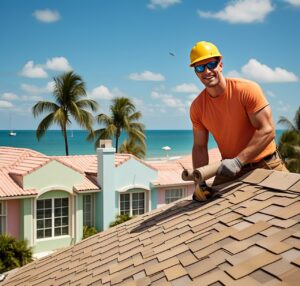 Commercial Roofing Considerations: Flat roofs, prevalent in Jacksonville’s commercial sector, require meticulous drainage systems to prevent pooling during the region’s 50-inch annual rainfall. A 2024 Westside warehouse upgraded to TPO, surviving a tropical storm and reducing energy costs by $5,000 annually. Metal roofs are favored near the port, where salt corrosion and heavy machinery demand durable solutions. A logistics hub in 2023 reported a 50-year lifespan for its metal roof, far outpacing asphalt alternatives.
Commercial Roofing Considerations: Flat roofs, prevalent in Jacksonville’s commercial sector, require meticulous drainage systems to prevent pooling during the region’s 50-inch annual rainfall. A 2024 Westside warehouse upgraded to TPO, surviving a tropical storm and reducing energy costs by $5,000 annually. Metal roofs are favored near the port, where salt corrosion and heavy machinery demand durable solutions. A logistics hub in 2023 reported a 50-year lifespan for its metal roof, far outpacing asphalt alternatives.
Local expertise is paramount, as Jacksonville roofers understand Duval County’s wind codes (150 mph) and drainage requirements. Poor drainage led to a $50,000 loss for a Riverside retailer in 2023, when water pooling collapsed part of a flat roof. Regular maintenance, including drain cleaning and membrane inspections, is critical to prevent such failures. Commercial property managers should prioritize roofers with experience in large-scale projects and familiarity with local permitting processes.
To protect your business and minimize operational disruptions, contact a Jacksonville commercial roofing specialist for a free quote and customized recommendations tailored to Duval County’s climate.
Navigating Insurance for Jacksonville Roof Repairs
Storm damage, from hurricanes to hail, is a frequent occurrence in Jacksonville, making insurance claims a common necessity for roof repairs in Duval County. Understanding coverage and navigating the claims process efficiently can save homeowners thousands of dollars. With Florida’s 2023 insurance reforms tightening claim deadlines, prompt action is more critical than ever.
Steps to File a Successful Insurance Claim:
- Document Damage Thoroughly: Take high-resolution photos and videos of leaks, missing shingles, damaged flashing, and debris impacts. Note the storm date and weather conditions for reference.
- Contact Your Insurer Promptly: File the claim within 30 days of the storm, as delays can lead to denials under Florida’s updated regulations. Provide all documentation and a detailed description of the damage.
- Obtain Professional Estimates: Hire a licensed Jacksonville roofer to conduct a comprehensive assessment and provide a code-compliant repair estimate. Insurers often require itemized quotes.
- Schedule an Adjuster Visit: Coordinate with the insurer’s adjuster and have your roofer present to advocate for full coverage of necessary repairs.
- Review the Settlement Offer: Ensure the offer covers all damages and complies with Florida Building Code requirements. Appeal denials with additional evidence if needed.
- Common Coverage and Pitfalls: Most policies in Duval County cover wind, hail, and debris damage, but exclusions may apply for neglect or pre-existing wear. A 2023 claim in Jacksonville Beach was denied due to insufficient documentation, costing the homeowner $10,000 out of pocket. Conversely, a Mandarin homeowner secured full coverage in 2024 by working with a local roofer who provided detailed photos and code-compliant estimates. Common reasons for denials include late filings, inadequate evidence, or failure to maintain the roof pre-storm.
Tips to Maximize Claim Success:
- Submit claims within 7–14 days of the storm to meet tight deadlines.
- Document the roof’s condition before storms (e.g., annual inspection reports) to counter neglect claims.
- Partner with a Jacksonville roofer experienced in insurance claims, as they can navigate local codes and insurer requirements.
- Avoid signing contracts with “storm chaser” contractors, who may inflate estimates or perform subpar work, jeopardizing claims.
- By acting swiftly and leveraging local expertise, homeowners can streamline the claims process and secure the funds needed for repairs. Consult a Jacksonville roofing professional for guidance on documenting damage and navigating insurance requirements.
Why Choose Local Jacksonville Roofers for Expert Solutions
Hiring a local Jacksonville roofer like Custom Roofing Solutions is a strategic decision for Duval County property owners, as regional expertise ensures roofs are built to withstand the area’s unique climate challenges. Unlike out-of-state or transient contractors, local roofers possess an intimate understanding of Jacksonville’s hurricane risks, coastal corrosion, and Florida Building Code requirements, delivering tailored solutions that prioritize durability and compliance.
Advantages of Local Roofers:
- Deep Climate Knowledge: Jacksonville roofers are well-versed in designing roofs for 150 mph winds, high humidity, and salt corrosion, ensuring optimal performance in Duval County’s conditions.
- Rapid Response Times: Local contractors offer same-day inspections and repairs, critical during storm season when delays can exacerbate damage. A 2024 Southside homeowner praised their local roofer’s 24-hour response post-storm.
- Community Trust and Accountability: Established roofers, often members of the Florida Roofing Association, rely on local reputation and offer warranties backed by years of service. A San Marco roofer repaired 50 roofs after a 2023 storm, earning widespread community trust.
- Streamlined Permitting: Familiarity with Duval County’s permitting process ensures faster approvals, avoiding delays that out-of-state contractors often encounter.
- Support for Local Economy: Choosing local businesses, especially those near the St. Johns River, strengthens Jacksonville’s economy and fosters long-term partnerships.
- Risks of Non-Local Contractors: A 2024 case in Southside highlighted the pitfalls of hiring an out-of-state roofer, who ignored Duval County’s underlayment codes, resulting in leaks and a $15,000 repair bill. Non-local firms may also lack proper licensing or insurance, exposing homeowners to liability. To avoid such issues, verify a roofer’s credentials through the Florida Department of Business and Professional Regulation, check BBB ratings, and review feedback on platforms like Jax4Jax.
Local roofers bring unmatched expertise and reliability, ensuring your roof is a long-term asset rather than a liability. Request a free estimate from a trusted Jacksonville roofer today to experience the benefits of local knowledge.
Future-Proofing Your Jacksonville Roof with Smart Solutions
Innovative roofing technologies are revolutionizing how Jacksonville homes and businesses withstand Duval County’s stormy, humid climate. Smart roofing solutions, such as solar shingles, leak detection sensors, and cool roof coatings, offer enhanced durability, energy efficiency, and proactive maintenance, aligning with Jacksonville’s push for sustainability and resilience.
Smart Roofing Options:
- Solar Shingles: These photovoltaic shingles generate electricity while serving as a durable roofing material, capable of withstanding 130 mph winds. A 2024 Riverside installation reduced energy bills by $1,200 annually and qualified for 30% federal tax credits.
- Leak Detection Sensors: Installed in attics or under roofing membranes, sensors alert homeowners to water intrusion via smartphone apps, preventing costly damage. They save an average of 20% on repair costs, per industry data.
- Cool Roof Coatings: Reflective coatings reduce roof surface temperatures by up to 50°F, cutting cooling costs by 15–20% in Jacksonville’s urban areas. They also extend shingle lifespans by minimizing heat-related wear.
- Self-Healing Materials: Emerging polymer-based membranes automatically seal minor punctures, showing promise for coastal areas where salt corrosion is a concern. These are still in early adoption but gaining interest in Duval County.
Local Adoption and Trends: Jacksonville’s commitment to green initiatives, including the city’s 2030 sustainability goals, has spurred adoption of smart roofing. A Mandarin business installed a cool roof in 2023, enhancing storm resilience and reducing energy costs by 18%. Solar shingles are particularly popular in upscale neighborhoods like Ponte Vedra, where homeowners prioritize both aesthetics and functionality. Leak sensors, now standard in many new constructions, helped a Jacksonville Beach homeowner avoid $7,000 in repairs during a 2024 storm by detecting a minor leak early.
Implementation Considerations: Smart roofing requires professional installation to maximize performance and comply with Duval County’s building codes. Homeowners should work with roofers certified in smart technologies and familiar with local incentives, such as Jacksonville’s energy efficiency rebates. While upfront costs are higher, long-term savings and enhanced resilience make these solutions a wise investment.
To future-proof your roof and align with Jacksonville’s sustainable vision, explore smart roofing options with a local expert. Schedule a consultation today to assess your property’s needs and discover cutting-edge solutions tailored to Duval County’s climate.
Conclusion: Building Resilient Roofs for Duval County’s Extreme Climate
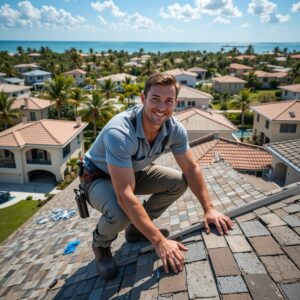 Duval County’s humid subtropical climate, marked by over 50 inches of annual rainfall, 80% average humidity, and frequent hurricanes, creates a punishing environment for roofing systems. Jacksonville’s coastal communities, like Atlantic Beach and Jacksonville Beach, face intensified challenges from salt-laden air that accelerates material corrosion, reducing roof lifespans by 10–20%, according to local studies. Storms such as Hurricane Matthew (2016), Irma (2017), and Ian (2022) highlight the region’s vulnerability, with NOAA noting a 40% annual chance of tropical storm impacts. Combined with scorching summers exceeding 90°F, these conditions demand roofing solutions engineered for resilience, far beyond standard materials that often fail within a decade.
Duval County’s humid subtropical climate, marked by over 50 inches of annual rainfall, 80% average humidity, and frequent hurricanes, creates a punishing environment for roofing systems. Jacksonville’s coastal communities, like Atlantic Beach and Jacksonville Beach, face intensified challenges from salt-laden air that accelerates material corrosion, reducing roof lifespans by 10–20%, according to local studies. Storms such as Hurricane Matthew (2016), Irma (2017), and Ian (2022) highlight the region’s vulnerability, with NOAA noting a 40% annual chance of tropical storm impacts. Combined with scorching summers exceeding 90°F, these conditions demand roofing solutions engineered for resilience, far beyond standard materials that often fail within a decade.
The Florida Building Code’s rigorous standards, requiring roofs to withstand 130–150 mph winds, underscore the necessity of hurricane-ready systems. Impact-resistant shingles, metal roofs, and concrete tiles, installed with techniques like six-nail fastening and self-adhered underlayments, provide critical protection against wind uplift and water intrusion. Ventilation systems, such as ridge and solar-powered vents, are equally essential, as demonstrated by a 2024 Southside case where proper airflow lowered attic temperatures by 20°F, extending roof life by five years. Regular maintenance, including spring inspections and post-storm repairs, prevents minor issues from escalating, with local data showing 20–30% repair cost savings through proactive care.
Emerging smart roofing technologies, like solar shingles and leak detection sensors, enhance durability while supporting Jacksonville’s 2030 sustainability goals. A 2024 Riverside homeowner’s solar shingle installation cut energy costs by $1,200 annually, proving both economic and environmental benefits. Commercial properties benefit from durable TPO or metal systems, as seen in a 2023 port-side warehouse that withstood salt corrosion and storms. Navigating insurance claims with detailed documentation and local expertise, as in a 2024 Mandarin success story, ensures timely repairs.
Hiring Jacksonville roofers like Custom Roofing Solutions, with their nuanced understanding of local codes and climate, avoids pitfalls like the 2024 San Marco case, where a non-local contractor’s errors cost $15,000. By prioritizing advanced materials, ventilation, maintenance, and local expertise, property owners can safeguard their investments against Duval County’s relentless climate, ensuring long-term durability and peace of mind.
SERVING TAMPA, ST. PETE & ORLANDO
Empowering Your Vision
CENTRAL FLORIDA

CALL TODAY AT (813) 644-2213
Custom Roof Solutions is proud to serve Tampa & Orlando homeowners and businesses with industry-leading roofing and solar services. Whether you need to protect your property from the unpredictable Florida weather or lower your energy costs with solar power, our experienced team is here to provide reliable solutions tailored to your needs.
SERVING JACKSONVILLE AREAS
Empowering Your Vision
NORTH FLORIDA
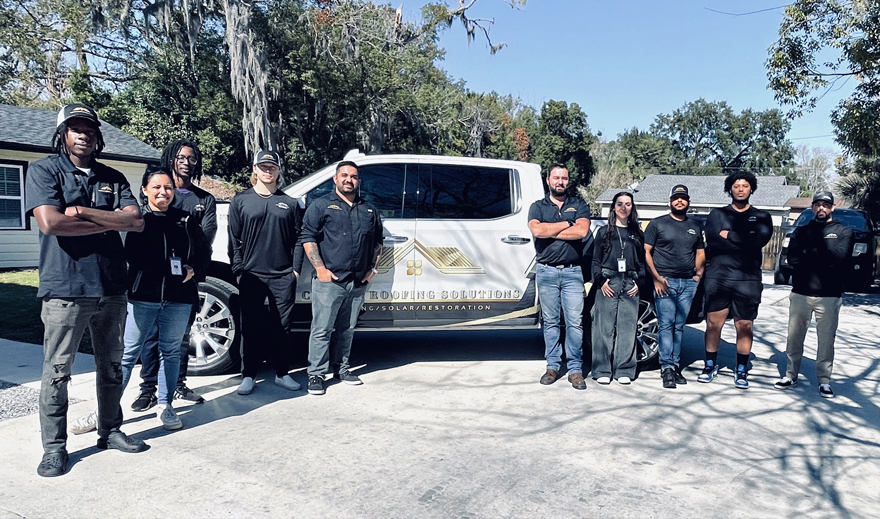
CALL TODAY AT (904) 808-3550
At Custom Roof Solutions, we understand Jacksonville’s unique weather conditions and architectural styles. Whether it’s protecting your home from hurricane-force winds, foof repairs or enhancing its curb appeal with a modern design, our experienced team delivers superior results and ensures long-lasting durability with our premium materials.
